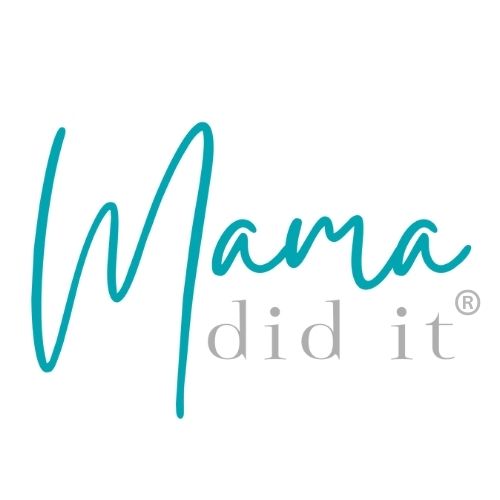Here’s what to expect for postpartum week four. Plus when are intrusive thoughts postpartum anxiety? A postpartum nurse weighs in.
Congrats on making it through your first month! Healing is an ongoing process. If you are still struggling in certain areas at postpartum week four, know that it is common and it will get better.
The postpartum experience is different for everyone. While some new parents feel they now are in the swing of things, others still are grappling with their new baby or the fourth trimester.
Postpartum fatigue is still ongoing. Many new mothers feel their significant others can’t understand why they still feel tired. Frequently waking in the night, plus the calories it takes to heal as well as nurse a new baby takes its toll.
“He just doesn’t get it!” This is a phrase I hear so often from the women I care for. It’s true. He doesn’t. But that doesn’t mean he is unable to understand that you are struggling. Continue to be open about what you are experiencing. Using communication scripts like, “I feel overwhelmed. Could you take over caring for the baby and let me have one hour of alone time?” can communicate how you feel and what you need without resentment towards what he isn’t doing.
They unfortunately can’t read our minds. What they are experiencing is different from what we are and if we don’t clue them in, they won’t know.
Postpartum Week Four
If I could give one piece of advice to mothers at this stage, it would be don’t compare your recovery journey to other moms. It’s so easy to scroll social media and see other mothers at this stage of life and wonder why they seem to be healing faster, moving around better, or adjusting better. Our hearts and brains are still recovering and it’s too easy to make snap judgments against ourselves. Guard well what you put in front of your eyes.
Try to find a bit of normal this week. Could you get out of the house for a coffee trip? Or maybe it’s a lunch date with the hubby? Many moms feel if they haven’t begun incorporating “normal” into their lives, they feel isolated and alone. What could you do that you used to do before your baby was born?
GOALS this week are a fun outing, a healthy diet with lots of warm foods and whole grains. And don’t forget to continue drinking plenty of water. I would also encourage you to identify one need you have and be brave by asking someone to meet that need. If your bleeding has stopped, you can take baths or go swimming this week!

Some women may still have some night sweats off and on. This is because of hormone changes. Keeping an extra pair of pajamas nearby can help with quick changes.
Vaginal Bleeding:
Your uterus has almost returned to its normal size. But keep in mind that your body will continue to change after birth for several months. New moms most likely aren’t going to fit into their pre-pregnancy clothes for some time. Did you hear that?
There are very few moms that fit into their pre-pregnancy clothes for months! Please don’t ask your body to do what it shouldn’t be doing right now. Dropping large amounts of weight by dieting or introducing intense exercise too early will actually hinder healing and recovery. Be patient with yourself.
Postpartum bleeding has probably stopped at this point, but it may last another two weeks. If you are still having lochia, it will be light. If vaginal bleeding starts again after it has stopped, you are probably pushing yourself too hard. Incorporate some extra rest. Your postpartum hemorrhage chances have dropped greatly by now, but as always if you started passing large blood clots or soaking a pad within one hour, call your healthcare provider.
Perineal Care:
If you had a tear or an episiotomy repaired, you may be experiencing some itching as it heals. You may see a thread or two passed on your pads or in the toilet. These are good signs. You are still healing in your perineum. Use your perineal squirt bottle after each bathroom break, and squirt from front to back. It’s okay to use toilet paper if you aren’t sore.
Bowel Movement: Pooping and Peeing
Most moms notice urinary incontinence improving on its own by now. It’s safe to begin Kegels to help with this if you want (see exercise). Bowel movements should be coming easily for you, though you may want to keep hemorrhoid cream on hand for a while. It can take them a couple of months to go away. But they should be getting better and better.
Exercise
Though you shouldn’t be doing HIIT workouts or weight lifting at four weeks postpartum, it’s generally safe to begin stretching and flexibility routines. Taking a walk for less than fifteen minutes is great exercise and research-proven to be safe for moms at this stage. You can also use diaphragmatic breathing techniques to help strengthen your core again.
You will know you are ready to move if you can walk for ten minutes without an increase in bleeding and you can control the breaths you take during your movement.

Kegels:
To do a proper kegel, lie on your back or side. Take a deep breath inhale. As you exhale slowly, imagine picking up a blueberry with your vagina. When it’s time to inhale again, put the blueberry back down.
It takes a lot of concentration to do a proper kegel, especially if you haven’t done them before. Try to be distraction-free as you get the hang of them. Is your butt relaxed while doing them? It needs to be. A good beginning goal with Kegels is doing 5-10 three times a week.
No need to rush “doing kegels.” If you feel you should do them, do. But make sure you’re doing them properly.
Diastasis Recti:
You have probably experienced a weight loss of about 15 pounds now. Continued fast weight drops don’t need to be the goal. Weight will still come off but at a slower pace. Any movement you do this week needs to be kind to your body changes and your core muscles. If you have diastasis recti (60% of women do), it is continuing to heal and close. Diastasis recti is the natural separation of the abdominal muscles during pregnancy.
Let movements be kind this week! No planking or Russian twists. It can worsen diastasis recti. Short, flexibility routines or a ten-minute walk is a terrific way to introduce activity back into your life.
Sex:
I don’t recommend sex until after your six-week follow-up appointment with your healthcare provider. They will assess your healing tissues and let you know if all is well. Orgasm won’t hinder your ability to heal, but rough penetration can. If you need to be intimate, keep things on the outside. When you do begin sexual activity again, consider birth control options unless you want to become pregnant again. Pregnancy can happen easily in the fourth trimester thanks to our lovely hormones.
Emotions:
Postpartum Depression
I’m going to level with you, Mama. This is the week where the baby blues either smoothes out, or postpartum depression tends to begin. Though hormonal changes are still happening, by this week they should be leveling out. Even though we still have sleep deprivation, usually we have begun to adjust to it.
If you feel you are having high feelings of sadness or feelings that you can’t handle this or you want to hurt yourself or your baby, do call your healthcare provider right now. Sometimes our brains and hormone levels aren’t adjusting to the changes taking place. You didn’t do anything wrong. Neither did your baby. But it is very important that you seek out professional help if you are struggling.
For my patients, I highly recommend talking to their OB doctor, as well as seeing a postpartum therapist. Oftentimes, postpartum depression improves best with a multi-faceted approach. If you aren’t already, take a good vitamin that has Omega 3’s in it. For natural ways to combat depression in motherhood, visit here.
Postpartum Anxiety and OCD
Many moms experience postpartum anxiety and OCD as intrusive thoughts. Because of the brain plasticity happening after birth, this can, to an extent, be normal. We are hyper-vigilant as new moms and it helps us protect our baby and adjust to life with an infant.
But sometimes these thoughts feel scary. They can feel chaotic or like we are losing our minds. It may be tempting to say things like, “I would never do that!” Anxiety can present in other ways too, like biting nails, sweating while changing a diaper, and shallow breathing.
It’s important to differentiate yourself from any thoughts you may have. Instead of defending yourself or thinking “What’s wrong with me!” say “This is an OCD thought.” If it feels like these thoughts are getting worse, or you are finding it harder to overcome them, it’s time to call your healthcare provider. Especially if these thoughts are causing a lack of sleep even when your baby sleeps.
You aren’t alone. So many new moms experience changes in their mental health. If you haven’t dealt with depression or anxiety before, chances are this is temporary. You may need medication and therapy for a bit. If we are honest, we all do at some point in our lives!
It’s really important not to sweep these issues under the rug. We want to avoid postpartum psychosis at all costs! Postpartum psychosis happens when postpartum women experience changes in mental health but didn’t get help. Small steps can be taken to avoid these dangerous situations. So if you are struggling, let go of any shame. Know many of us have struggled, and call your doctor.
Cesarean Birth:
How are my c-section moms doing? Cesarean birth is no joke. I once heard someone call it “the easy way to give birth.” WHAT?! Obviously, they had never experienced abdominal surgery.
By now, your vaginal bleeding has stopped. Your incision site is nice and healed up. You probably don’t have any drainage from the area anymore.
You can start using silicone sheets to help minimize scarring if your incision is healed and you don’t have any scabbing present. Silicone is research-proven to be effective at minimizing scarring, even more than scar creams.
Touch therapy is important for you! Moms who avoid the scar area completely may experience more pain in the area than moms who don’t. Avoidance can cause even underwear or wearing pants to hurt. It’s important we send the message to our bodies that, “I’m okay” as our nerves reintegrate. This can help with pain.
Start by gently rubbing the top of your stomach. Frequent, gentle strokes are best. As you are able, move to the sides of your belly. When you feel ready, move to the area above your incision. You’re just gently reintroducing touch to the areas affected by surgery and connecting your brain to your body.
Pain:
Women who had second, third, or fourth-degree tears with a vaginal delivery, will still have perineal pain and perineum soreness this week, but it should get better and better each week. Remembering to use your perineal squirt bottle after each bathroom visit and applying witch hazel pads as needed can be helpful.
For more relief down there, I recommend a lidocaine cream. Gently dab it directly to the area for instant relief. You can also take over-the-counter pain medication as needed.
For cramping, feel free to use a heating pad.
For incisional pain, occasional tylenol or ibuprofen can help.
Breastfeeding:
For many moms, breastfeeding has smoothed out by week four or they have changed their feeding plans. Sore nipples and sore breasts are occasional happenings from a baby mislatching or missing a nighttime feed, leading to breast engorgement. It isn’t everyday life anymore.
I have had several mothers tell me, “I think my milk supply is going away.” Maybe, but probably not. Our breasts learn to be efficient in this milk-making process. At the beginning big surges of hormones caused our milk to let down. Now our breasts can do it more efficiently. We may not feel those huge breast milk drops. It may feel like tingling.
Most of the time, we have just as much milk, it just feels more comfortable. If you are ever concerned and need some reassurance, schedule an appointment with a lactation consultant. Breast milk production is a supply-and-demand process, so be sure baby is nursing at least 8-12 times in 24 hours. Emptying the breasts often leads to more milk.
You may experience clogged ducts if your baby skips a feeding. Here’s how to unclog a milk duct.
Postpartum Week Four
It’s such a milestone to make it to your first month. Did it feel slow or fast? It’s usually a combination of both. Don’t put too much pressure on yourself to feel normal. It can be several months before you feel like yourself or comfortable in your own skin again. Recovery is continuing. Onward into this motherhood metamorphosis!
You may also like Postpartum Week Five.
